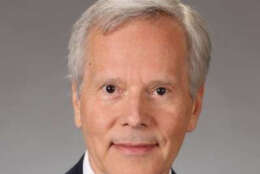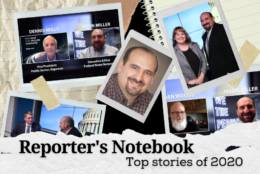Acquisition Policy
-
The Office of Federal Procurement Policy released three memos since October to give agencies guidance on buying from AbilityOne firms, emphasizing skills over education in contracts.
January 20, 2021 -
DISA launched its cloud-based internet isolation program as a way to keep malware off of DoD networks, but it also reduced the need for expensive IT infrastructure upgrades.
January 18, 2021 -
Federal agencies - and there are several of them at least - affected by the SolarWinds cybersecurity fiasco are under a new deadline.
January 14, 2021 -
The program aims to fight the problem of "adversarial capital" by pairing companies working on promising military technology together with investors that DoD has verified are free of foreign influence.
January 14, 2021 -
The General Services Administration is keeping contractors on their toes with the release of three acquisition initiatives — Polaris, the new small business governmentwide contract, and two requests for information around emerging technology and professional services.
January 12, 2021 -
The Special Access Program Corporate Portfolio Program, begun as a pilot in 2016, became permanent last month.
January 11, 2021 -
The omnibus appropriations bill recently passed by Congress is so large, it took a week to stuff it into whatever antiquated electronic system the Congress operates. But not all federal documents are so fat and bloated.
December 30, 2020 -
Missing the guardrails by inches, the nation's careening political apparatus has managed to fund the government for fiscal 2021.
December 29, 2020 -
The top 10 Reporter’s Notebook stories of 2020 included cybersecurity, acquisition and the seemingly never-ending JEDI saga.
December 23, 2020 -
This week on Amtower Off Center, Martha Dorris, founder and CEO of Dorris Consulting joins host Mark Amtower to discuss customer experience and how it fits in the federal government.
December 22, 2020 -
The House Oversight and Reform Committee released the 11th FITARA scorecard where no agency received an "A" grade and 10 agencies earned B grades.
December 22, 2020 -
FAS outlined three goals of the Services Marketplace initiative, while setting forth a series of efforts to achieve the goals. Chief among them are rationalizing, aligning, and expanding GSA’s GWAC, Multiple Award Contract, and MAS service contract offerings.
December 18, 2020 -
In recent years, federal acquisition policy and practice has been a competition between two different priorities: Efficiency and innovation. Instead of balancing these priorities, innovation has taken the backseat.
December 17, 2020 -
In her first public statements since the Nov. 23 decision to ascertain the election results, Emily Murphy, the GSA administrator, explained her thinking behind the decision and how she prepared for it and dealt with the noise that came from it.
December 16, 2020 -
Multiple vendors as well as consultants, lawyers and a major GSA-focused trade association representing hundreds of schedule holders say the pendulum has swung too far in how the Federal Acquisition Service is requiring vendors to renegotiate prices.
December 15, 2020













